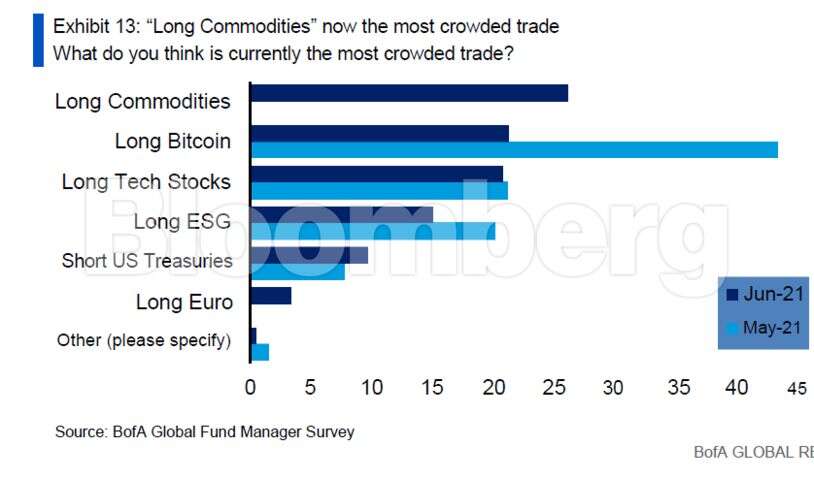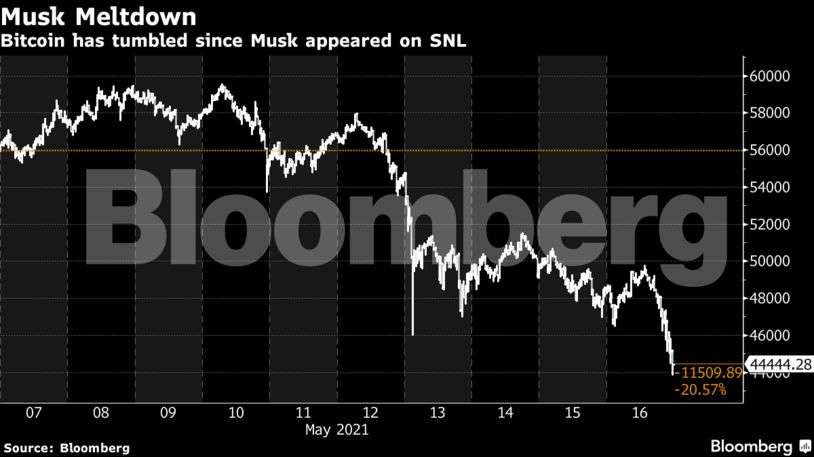By Sydney Maki and Vildana Hajric
El Salvador’s bold move to accept Bitcoin as legal tender has Wall Street once again wondering whether a cryptocurrency could really ever replace the old-school dollar.
It’s a question that appeared, at least to some, to already be nearly answered after a handful of trailblazing companies — including Tesla Inc., MicroStrategy Inc. and Square Inc. — incorporated Bitcoin into their balance sheets without igniting a broader corporate revolution. Now, the focus is turning to governments.
El Salvador, which started using the U.S. dollar as its currency more than 20 years ago, last week became the first country in the world to pass legislation allowing use of Bitcoin in any transaction. President Nayib Bukele says the point is to counter the fact that relatively few citizens have bank accounts and to cut the cost of sending remittances, or money that workers ship back to their families in El Salvador from other countries.
Some observers wonder whether a bigger movement is afoot: replacing a conventional currency — the dollar, the titan of global commerce and finance — on a national scale and then beyond.
The answer, at least for Julian Sawyer, chief executive officer of Bitstamp, one of the world’s longest-running crypto exchanges, is not quite yet.
“There’s been a lot of people who have sat in the crypto world who’ve said, ‘Oh, crypto is going to take over the world and traditional banks and central banks will go away,’” he said in a telephone interview from London. “That’s not going to happen.”
While the technology itself may be used increasingly in the behind-the-scenes plumbing of financial services, such as money being sent across borders, Sawyer said Bitcoin is still too volatile to fully replace the dollar, though it may become part of the mix.
“Will there still be the dollar? Yes,” he said. “Will there still be Visa and Mastercard? Absolutely. It will just be we’ll have alternatives for using plastic, or paper, or coins or checks.”
El Salvador’s central bank president also said on state television that Bitcoin would not replace the greenback in the nation.
The dollar is stable, especially when compared with Bitcoin’s explosive price moves. And whereas the dollar usually fluctuates for mundane reasons, crypto can be swayed by tweets, memes and Elon Musk — not a great fit for a national or global currency. Bitcoin quadrupled last year, while the Bloomberg Dollar Spot Index slipped 5.5% — a fairly big number for the greenback. Since mid-April, Bitcoin has lost nearly half of its value.
Bank of America Corp. research shows Bitcoin is about four times as volatile as the Brazilian real and Turkish lira — and neither of those is anyone’s model of stability.
“Bitcoin injects extra volatility,” which is counterproductive for countries looking for stability, said Marc Chandler, chief market strategist at Bannockburn Global Forex. “Why do countries peg their currency to another currency or have a currency board or have a dollarized economy? It’s because their currency has become too volatile or lost credence in the market and become out of control, very inflationary.”
Test Case
That doesn’t mean other countries won’t look to El Salvador as a test case for what can happen, especially those that benefit from remittance flows or have central banks already researching or piloting cryptocurrencies of their own.
“Countries can’t just look away from this option now,” said Valkyrie Investments CEO Leah Wald, who previously worked for the World Bank. “For the longevity and health and well-being of Bitcoin, and the Bitcoin network, this is the dawn of a new day.”
Nations from Haiti to Guatemala, South Sudan and Liberia could be next to adopt Bitcoin given their dependence on remittance inflows, high poverty and low financial inclusion, according to Rahul Shah, Tellimer Ltd.’s head of financials equity research.
Other dollarized economies — those, like El Salvador, that are based on the greenback — are also candidates to officially adopt Bitcoin and become less dependent on the Federal Reserve and U.S. policies.
“It potentially gives the ability to not be as beholden to the dollar over the long term, and be more independent of the existing financial system,” said Brad Bechtel, global head of currencies at Jefferies. “Once you see one country go that way, it wouldn’t surprise me to see more.”
Ecuador, which has been dollarized for two decades, could also consider Bitcoin, said Emily Weis, a global macro strategist at State Street Corp. Colombia and Mexico, meanwhile, would risk disrupting their local currencies, even if they have large remittances and crypto interest among the local populations, she said.
“Many EM populations already have an affinity for cryptocurrencies given capital controls, fragile local market dynamics, and volatility of local currencies,” Weis said.
There’s also the related business opportunities: El Salvador’s Bukele, for example, is using the new law as a way to stoke interest in mining Bitcoin in the coastal country. He ordered the president of the state-owned geothermal electric company to make plans to offer greener mining facilities.
“All it takes is one small domino and eventually it can create real change,” said Alex Tapscott of Ninepoint Partners LP, which has a Bitcoin ETF in Canada.
 Other highlights from survey, which was conducted June 4 to 10, include:
Other highlights from survey, which was conducted June 4 to 10, include: